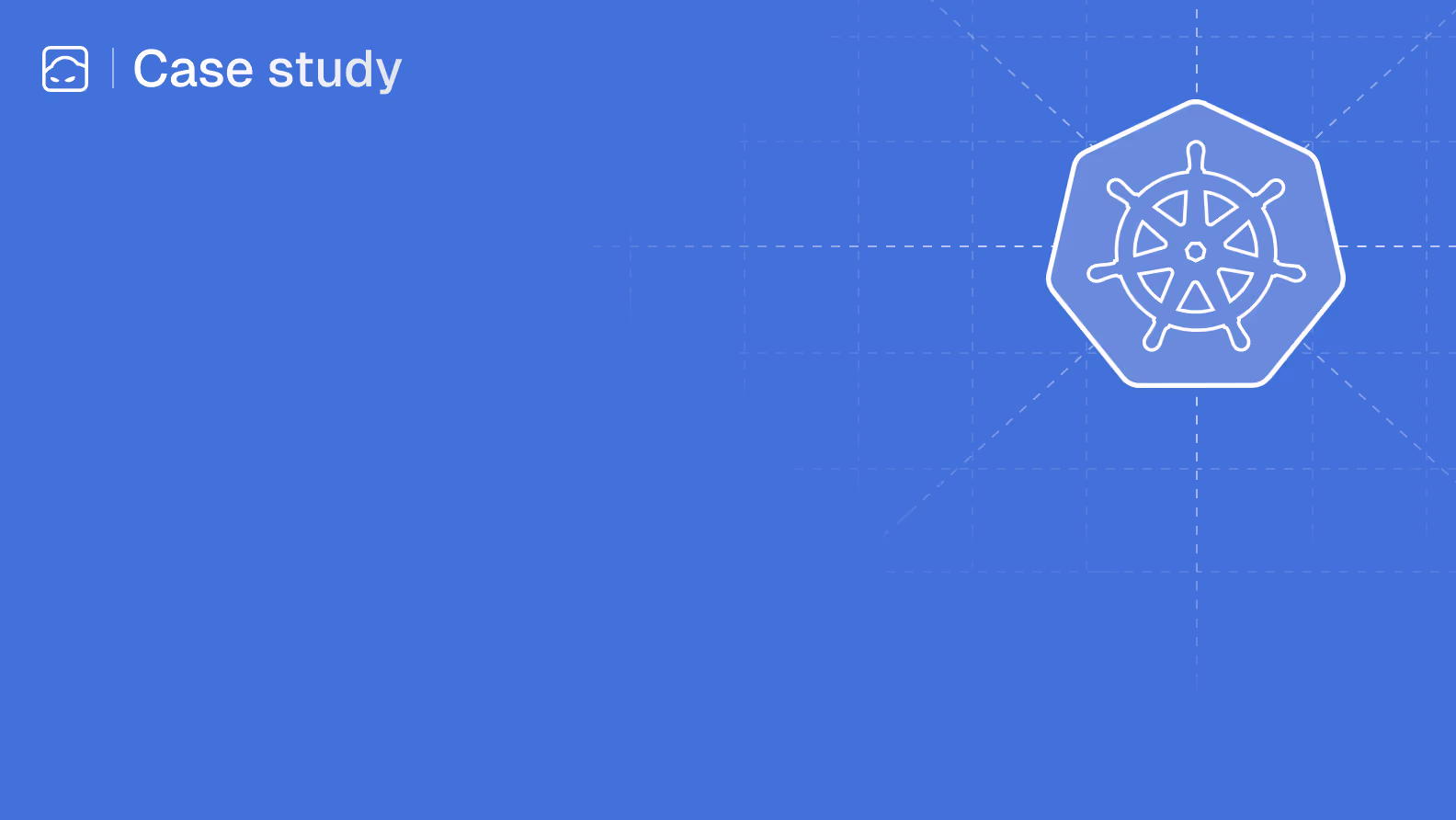
A publicly traded marketplace cut its Kubernetes costs by 35% with Pelanor

TL;DR
Pelanor is reimagining cloud cost management with AI-native FinOps tools that explain spending, not just track it. By rebuilding the data layer from scratch, we deliver true unit economics across complex multi-tenant environments - revealing what each customer, product, or team actually costs. Our AI vision is deeper: we're building systems that truly reason about infrastructure, learning what's normal for your environment and understanding why costs change, not just when.
The client
A global, NASDAQ-listed leader serving businesses of all sizes, from startups to 30% of the Fortune 100. Operating in over 180 countries, the company runs one of the world’s largest and most prominent marketplaces in its domain, delivering massive scale and reach across highly diverse markets.
The hurdles: visibility and accountability
The client's platform runs on a modern Kubernetes architecture featuring multiple clusters per environment, advanced replication strategies, multi-region deployment, and distributed availability zones.
- Kubernetes invisibility - The client architecture made it difficult to segment costs within clusters using native CSP billing tools, or traditional cost management solutions. While most tools provide cluster-level visibility by collecting billing data at the VM instance level, they couldn't break down costs by Kubernetes namespace or workload.
- Cost creep - The client faced persistent cost creep across key cloud components. Without visibility into which specific services drove both gradual trends and sudden spikes, the team struggled to implement proactive controls or generate accurate forecasts.
- Attributing cloud costs - Modern practices like microservices and shared infrastructure services made it nearly impossible to accurately attribute costs to products, teams, or cost centers. Traditional tagging proved insufficient, as shared resources couldn't be cleanly allocated through tags alone.
The client needed a Cloud Cost Management platform to replace their labor-intensive FinOps process that relied on custom scripts and manual data analysis.
The breakthrough: Pelanor's tailored solution
To address these challenges, Pelanor partnered with the client's DevOps and FinOps teams to deliver rapid value through a focused Proof-of-Value (PoV):
- Seamless Integration: The DevOps team configured billing data imports from AWS and Azure through Pelanor's self-serve integrations portal and deployed Pelanor's eBPF-based Kubernetes sensor to segment and visualize costs by Kubernetes constructs.
- Configuring Custom Dimensions: The FinOps team created business unit mappings as Custom Dimensions, combining tags, account IDs, service names, and unique properties like database query users. This enabled sophisticated cost attribution without extensive tagging requirements.
- Stakeholder Reporting: Teams built tailored dashboards and reports, ensuring each stakeholder received relevant, actionable insights.
Following the PoV's success, the client deployed Pelanor across their entire cloud environment, replacing both their homegrown solutions and legacy CCM platform.
The transformation: measurable impact across the organization
The implementation of Pelanor's platform brought about significant improvements and tangible results:
35% reduction in Kubernetes costs with 0% business impact
Network charges, while often overshadowed by compute costs, can become a substantial portion of cloud spend as organizations scale. When left unmonitored, unnecessary traffic and misconfigurations drive these costs even higher. The client's DevOps team leveraged Pelanor to analyze Kubernetes-related network costs and identify optimization opportunities. Their analysis immediately revealed that network fees accounted for over 30% of total Kubernetes spending, a strikingly high proportion.
Using Pelanor's interactive drill-down capabilities, the team rapidly segmented network costs to identify which workloads and traffic flows were driving expenses. They discovered a misconfigured Application Monitoring Service generating unnecessary cross-availability zone traffic, which, unlike intra-AZ communication, incurs charges from cloud providers.
After reconfiguring their Kubernetes environment and Application Monitoring Service, the client achieved a 35% reduction in Kubernetes-related cloud costs with zero impact on performance or SLAs.
Increased cloud cost allocation
Using Pelanor Dimensions, the client’s FinOps team implemented a cloud cost allocation model designed to promote accountability. Unlike traditional tagging approaches - which require extensive engineering resources and ongoing maintenance - Pelanor Dimensions enables the FinOps team to define allocation rules independently, by leveraging existing metadata and resource properties.
Within weeks, the team achieved a significant improvement in cloud cost allocation accuracy. This was made possible by Pelanor's unique capability to unify traditional CSP tags with Kubernetes labels and capture application-level attributes - such as the specific database query executing user. The solution also delivered substantial time savings by eliminating the need for manual creation and execution of cost allocation reports.
The bottom line
Pelanor's Cloud Cost Management platform delivered unparalleled visibility into the client's cloud spend, enabling precise cost alignment with business units and driving significant savings. By addressing the client's unique challenges, combining Kubernetes visibility with cost attribution and multi-cloud management, Pelanor became a cornerstone of their FinOps methodology.
This partnership demonstrates the critical role of modern FinOps platforms in cloud-native enterprises: democratizing cost data, accelerating shift-left practices and accountability, and simplifying the management of complex, rapidly evolving cloud infrastructures.
.avif)